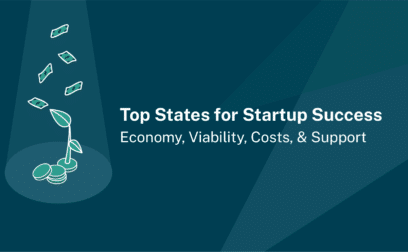TABLE OF CONTENTS
Page written by Chris Godfrey. Last reviewed on October 9, 2024. Next review due October 1, 2026.

Tractor financing – also known as equipment financing – is a type of business loan used to support the purchase of new or used tractors. This type of financing lets you use the equipment as you pay for the equipment. Buy one or more tractors without putting strain on cash flow.
There are two types of tractor financing:
Tractor finance is a straightforward business loan. You make a down payment on the tractor and then pay off the balance of the purchase price, plus interest, with regular payments over a fixed-term contract. The equipment acts as security for the loan. When the agreement comes to an end, the tractor is paid for and yours to keep.
A tractor lease is really a long-term rental agreement. Because you are only financing some of the purchase price, leasing typically has lower monthly payments than a finance/loan. With a lease, you make a down payment and then pay a regular sum plus interest each month to use the tractor. At contract end you can either give the equipment back to the lender, renew the lease at a different cost per month, or buy the tractor for the fair market value – commonly known as a ‘balloon payment’.
No matter if you are buying new or used and from a dealer or a private seller, there are several ways to finance your next tractor.
You should shop around for different financing offers before settling on a deal. You can do this by approaching banks, credit unions and online lenders one by one, or you can use the services of a loan marketplace that will introduce you to a choice of tractor financing deals from different lenders. Some marketplace platforms can also give you advice and help you with the application process. This can be especially useful for business owners who have never taken out a tractor loan before.
Tractor financing can deliver a whole range of benefits:
Tractor financing has few disadvantages:
Every lender will have their own documentation requirements, but standard finance application paperwork includes:
Most lenders will want a minimum personal FICO score of +640, although with some online lenders, it may be possible to get tractor finance with a score in the mid-500s.
Many lenders will only conduct a ‘soft search’ when you apply for tractor finance pre-approval. This does not show on your credit report. Only when you close the loan does the lender report the debt to the credit reporting agencies. This may make a small initial dip in your credit score, but it should recover as you make payments on time. Tractor finance can actually help your credit score if you never miss a payment. However, if you do miss instalments, they will show as negative impacts on your credit report and may lower your credit score.
Working with business finance experts can make all the difference when applying for tractor financing. Contact Swoop to discuss your borrowing needs, get help with your application and to compare top quality tractor financing from a choice of lenders. Get the vehicles you need without putting strain on cash flow. Register with Swoop today.
Chris is a freelance copywriter and content creator. He has been active in the marketing, advertising, and publishing industries for more than twenty-five years. Writing for Wells Fargo Bank, Visa, Experian, Ebay, Flywire, insurers and pension funds, his words have appeared online and in print to inform, entertain and explain the complex world of US consumer and business finance.
Swoop promise
At Swoop we want to make it easy for SMEs to understand the sometimes overwhelming world of business finance and insurance. Our goal is simple – to distill complex topics, unravel jargon, offer transparent and impartial information, and empower businesses to make smart financial decisions with confidence.
Find out more about Swoop’s editorial principles by reading our editorial policy.
Related pages
Get your free Tractor financing quote today
Join the 95,000+ businesses just like yours getting the Swoop newsletter.
Free. No spam. Opt out whenever you like.
Kingfisher Way, Silverlink Business Park, Newcastle upon Tyne, NE28 9NX, UK
View in Google Maps35 Bull Street, Lewis Building, Birmingham B4 6AF, UK
View in Google MapsAberystwyth Innovation and Enterprise Campus
Gogerddan Campus
Aberystwyth University
Ceredigion
SY23 3EE
Dogpatch Labs, The CHQ Building, Custom House Quay, Dublin, Ireland
View in Google MapsSuite 801, Level 8, 84 Pitt Street, Sydney, NSW 2000, Australia
View in Google Maps43 W 23rd St, New York, NY 10010, United States
View in Google Maps21 Dreyer Street, Cape Town, South Africa, 7708
View in Google MapsClever finance tips and the latest news
Delivered to your inbox monthly
Join the 95,000+ businesses just like yours getting the Swoop newsletter. Free. No spam. Opt out whenever you like.




